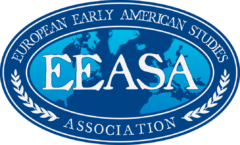University of Kansas
May 2024
Slavery played a critical role in shaping and reshaping the environment in the Americas. Slave-grown export crops such as sugar, tobacco, cotton, coffee, and rice transformed the landscspe. The rise of the Atlantic slave trade led to significant changes in the soils, plants, animals, parasites, and diseases of entire regions. The realities and the perceptions of these new environments continued to shape forced and free migration, ideas about race, and both proslavery and antislavery discourses. The development of the plantation complex redefined relationships between rural areas and urban centers; urban centers grew and changed to facilitate human trafficking and the Atlantic trade in export goods. The efforts by planters and governors to regulate enslaved people and by enslaved people to resist that regulation created free and unfree spaces. Forests, mountains and swamps offered sanctuaries to which enslaved could escape, individually or as entire communities. The enslaved developed strategies to utilize their natural surroundings and their knowledge of the environment helped them to gain autonomy and resist the dehumanization of enslavement. They developed skills in cultivating plants and in hunting, fishing, and gathering to better survive within a brutal system. Hurricanes, droughts, rainstorms and pests could destroy both plantation produce and enslaved provision grounds. Enslavers and the enslaved struggled against each other but also against their environment.
The histories of slavery and the environment are interwoven, multifaceted and contested. A deeper understanding of that relationship in the Americas demands careful interdisciplinary engagement with a vast array of sources. The scholarship on slavery and the environment intersects with scholarship on race, gender, agriculture, medicine, migration, and colonialism. With this workshop, we hope to bring together scholars with a variety of backgrounds and perspectives to participate in the creation of a new environmental history of slavery in the Americas. The workshop will bridge the gap between scholars of early America and the nineteenth century. It will extend beyond the boundaries of Anglo-American history. It will incorporate rich new research in historical archeology and bioarcheaology that is helping to reshape our understanding of slavery. We want to demonstrate the impact of the institution on the environment as well as the ways in which the environment shaped the institution, the lives of the enslaved and their capacity for resistance. We hope to bring an environmental sensibility to the rapidly growing historiography on slavery in the Americas.
A two-day international workshop at the University of Kansas will explore the relationship between slavery and the environment in the Americas. The workshop is scheduled for May 2024. We will also make it possible for some participants to join us remotely if they cannot attend in person.
The organizers of the conference invite applications to participate in the workshop. Rather than writing a full paper to circulate in advance, we ask that participants submit a 10-page “snapshot” of their presentations in advance; at the workshop, participants will discuss their work and invite comments and questions. Our goal is to pull out shared themes and questions through discussion in order to create a coherent group of papers, because we plan to work with a publisher to produce a book based on the workshop papers. Previous workshops at KU that adopted this method yielded edited volumes published by university presses—collections that press referees praised for their coherence and focus.
The workshop is sponsored by the McNeil Center for Early American Studies and by the Center for American History at the University of Kansas. The sponsors can support economy travel to Lawrence and lodging during the workshop; meals at the workshop will be provided. Project coordinators Andrew Isenberg and Justin Roberts will help direct the workshop.
The organizers are seeking applications from a mix of established and early career scholars. PhD candidates are encouraged to apply. Please send a cover letter, a three page cv, and a one page synopsis of your paper to both justin.roberts@ku.edu and isenberg@ku.edu. The application deadline is April 30, 2023.
Please feel free to contact us at justin.roberts@ku.edu or at isenberg@ku.edu if you have any questions. We look forward to hearing from you.
Contact Info: Andrew Isenberg, University of Kansas isenberg@ku.edu and Justin Roberts, University of Kansas justin.roberts@ku.edu
